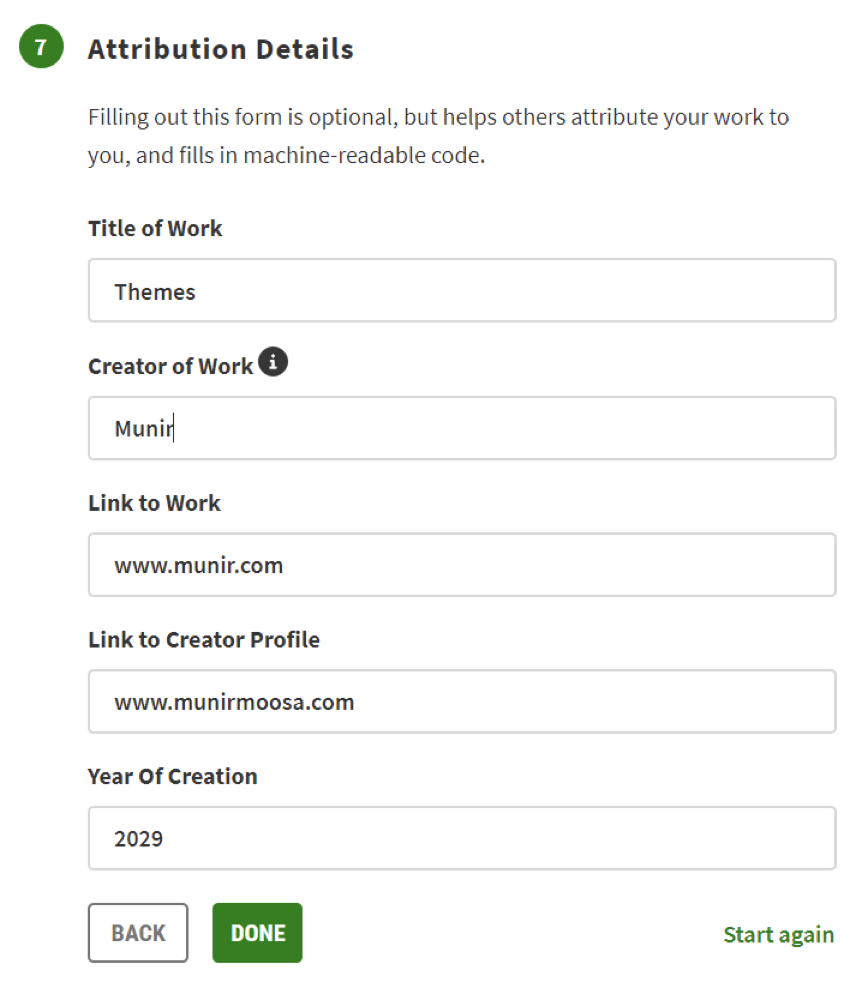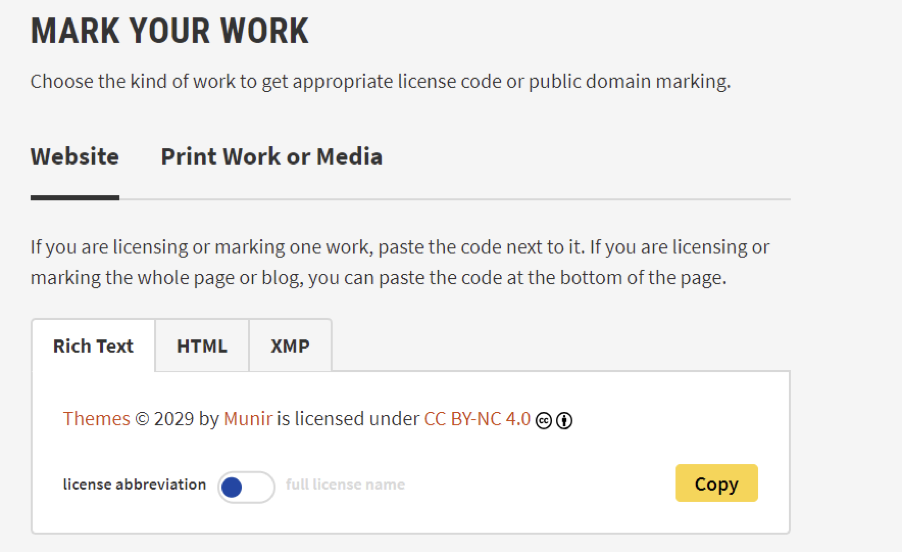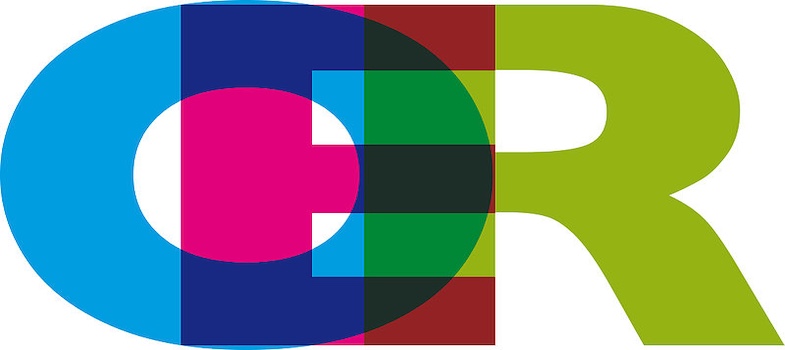3.6 FAQs
Who can use a CC licence?
Any researcher, teacher, educator, learner, artist, or other creator who wishes to share their work with wider communities and ensure attribution of their work
Which licence is best for my work?
It depends on the nature of your work, your needs, and the way you wish to share your work with others. For example, The Open University's OpenLearn platform offers free online courses under CC BY NC SA licence that is intended to prevent other organisations selling those courses for money.
Are there versions of the licence?
The Creative Commons licensing system has versions starting with 1.0. The version at time of writing (February 2024) is 4.0. The versions refer to the conditions attached to that licence at the time of publication. For example, the 4.0 version is considered an international version, in which a URL is required for attribution if available. More details are available at: https://wiki.creativecommons.org/wiki/License_Versions
What is CC0?
CC0 is a public domain dedicated tool. It means that the creator allows others to use their work in any way without any condition, not even acknowledging the author’s name.
Are all online free resources OER?
No. Only those resources that are published under an open digital licence where the author has permitted others to use their work are called OER. Other resources that are published under traditional copyright or other licences are not OER and cannot be freely used, adapted or re-shared. A caveat to this is that the licensing information for some OER is sometimes not clearly visible. So, if you’re creating an OER yourself, make sure the licensing information is very clear and visible to all.
Are OER always online?
No! Not all OERs are online. Some are paper-based. OERs are also shared via SD cards and CDs. Radio programmes can also be OER.
Can we sell the freely available OER?
It depends on the type of digital licence the resource carries. As you’ve seen, the Creative Commons ‘NC’ licence (non-commercial use) prevents the sale of OER released under this licence.
Is there any cost associated with the publication of OER?
While OER are free, resource creators may incur charges for website maintenance, hardware, software or editing services – just as they would with the creation of a resource that is not openly licensed.
What benefits does a person get if they publish a resource as OER?
The most obvious benefit a person receives is visibility and recognition for their work. Their work is used by others with citations of the original author (if a CC-BY license has been used), fostering sustainable educational practices and reaching a wider audience across the world.
Are all online resources OER?
Not all resources available online or in the library are OER. It is therefore crucial to learn how to search, identify, and locate appropriate OERs that are digitally licensed.
What if a person copies resources from multiple sources and compiles them? Can we call that resource OER, and can I own the rights to those resources?
It depends. If the source resources have a licence that allows adaptation then you can use the content as part of another resource and release it as an OER, as long as you cite the original author’s name (where the resource has a ‘BY’ component in its licence). Indeed, if the resource has a ‘share alike’ (SA) license you must release any derivative as an OER with the same licence if you do re-share it. If the source resources don’t have an open licence you must not use content from them and release that content as an OER, as you don’t own the original resource.
If I compile OER and develop an improved version, does it count as plagiarism?
No, it does not because the contributor has permitted a digital licence for everyone to use their work under the given conditions. However, if the work has a ‘ND’ (no derivatives) element in its licence, you are not allowed to adapt it or use it as part of a new resource.
Can you edit the OER after publishing?
Yes, you can edit it as many times as you want, subject to the condition attached to the digital licence.
How to create Creative Commons licences online
You can download and use the licences from http://creativecommons.org/about/downloads/ or you can create a Creative Commons licence online
Step 1
Go to https://chooser-beta.creativecommons.org/
Step 2
For the heading 'Do you know which license you need?' click No and click NEXT.

Step 3
If you want others to attribute you, click YES or else NO. Click next

Step 4
If you want to allow others to use your work commercially, click YES. If not, click NO. Click Next

Step 5
If you want to allow others to remix adapt, or build upon your work, press YES. Otherwise click NO. Click Next.

Step 6
If you want to allow others to share adaptations of your work under any license, click YES, otherwise click NO.

Step 7
Check the license in the right top corner. If the license is appropriate, confirm using the next step


Step 8
Finally, add attribution details

In the right corner, you will find the license that you can copy and use in your work

